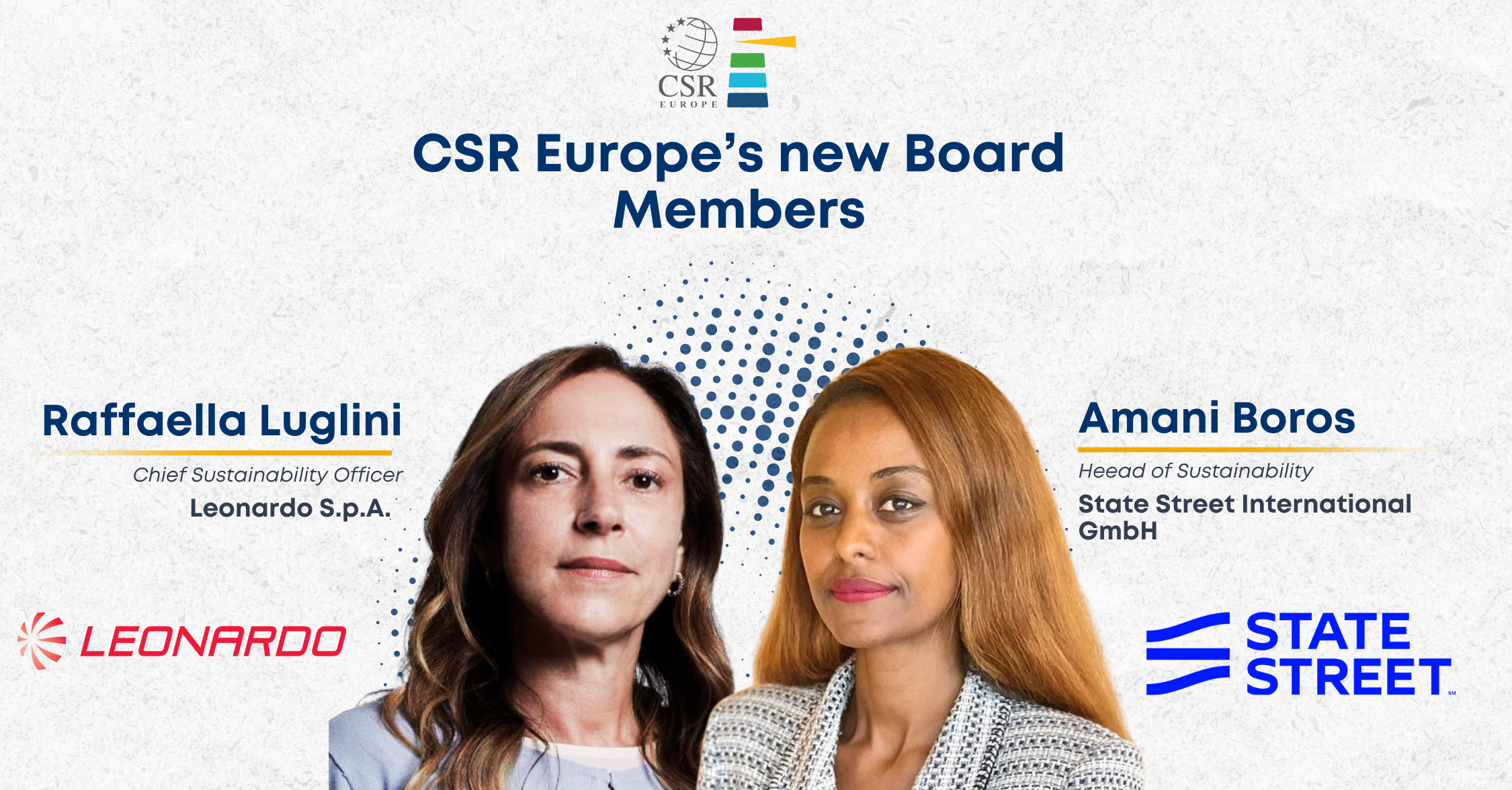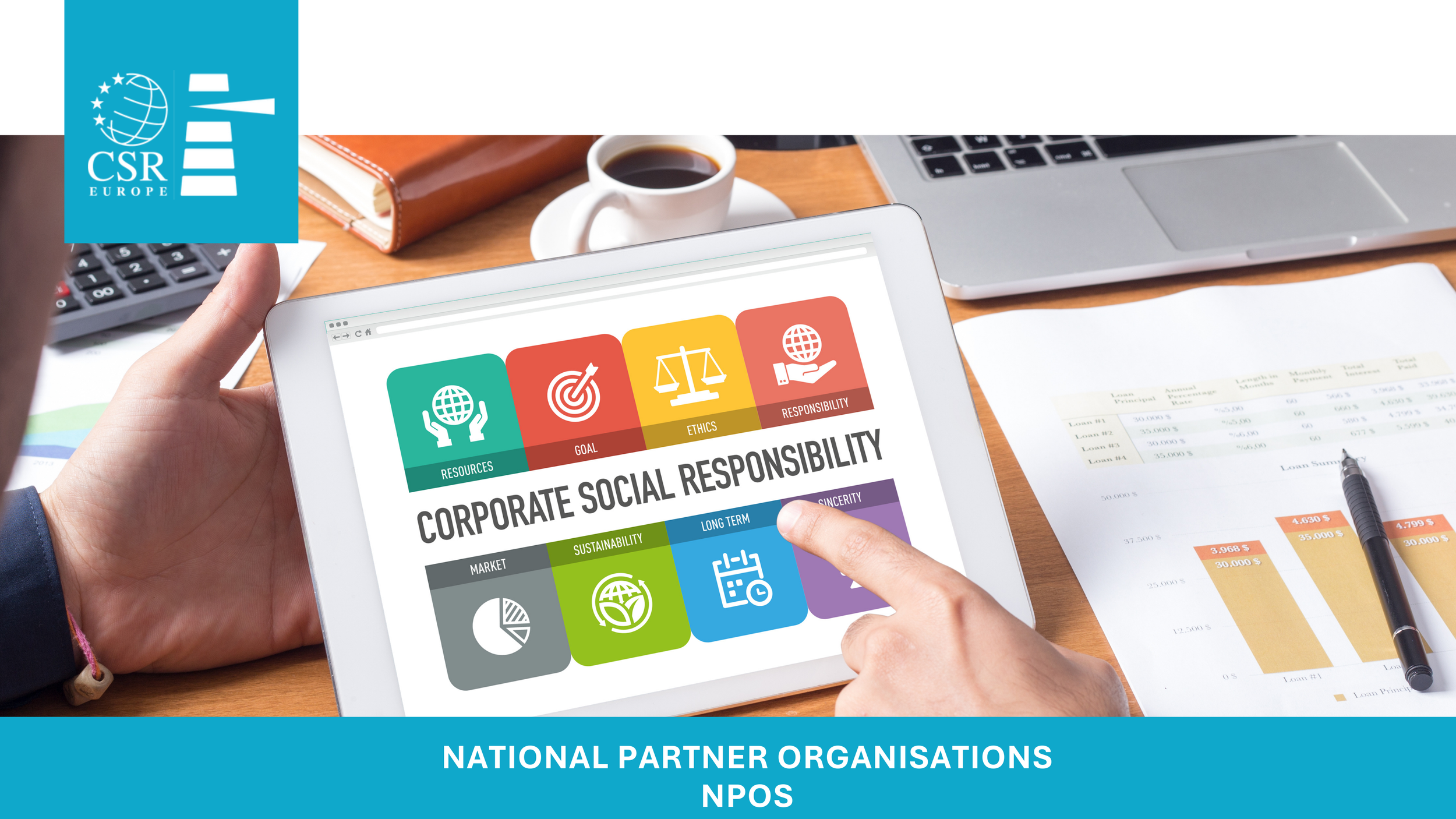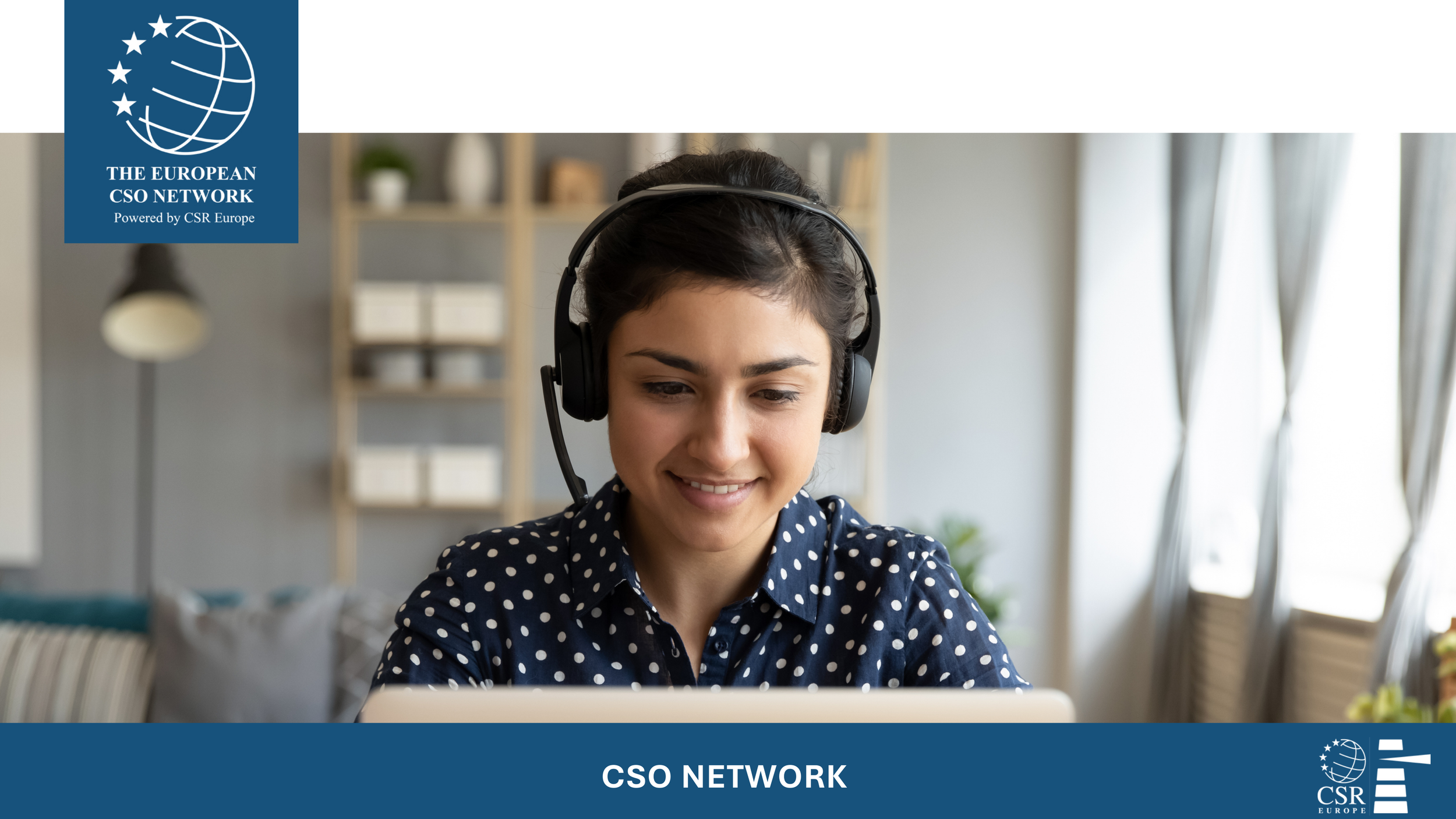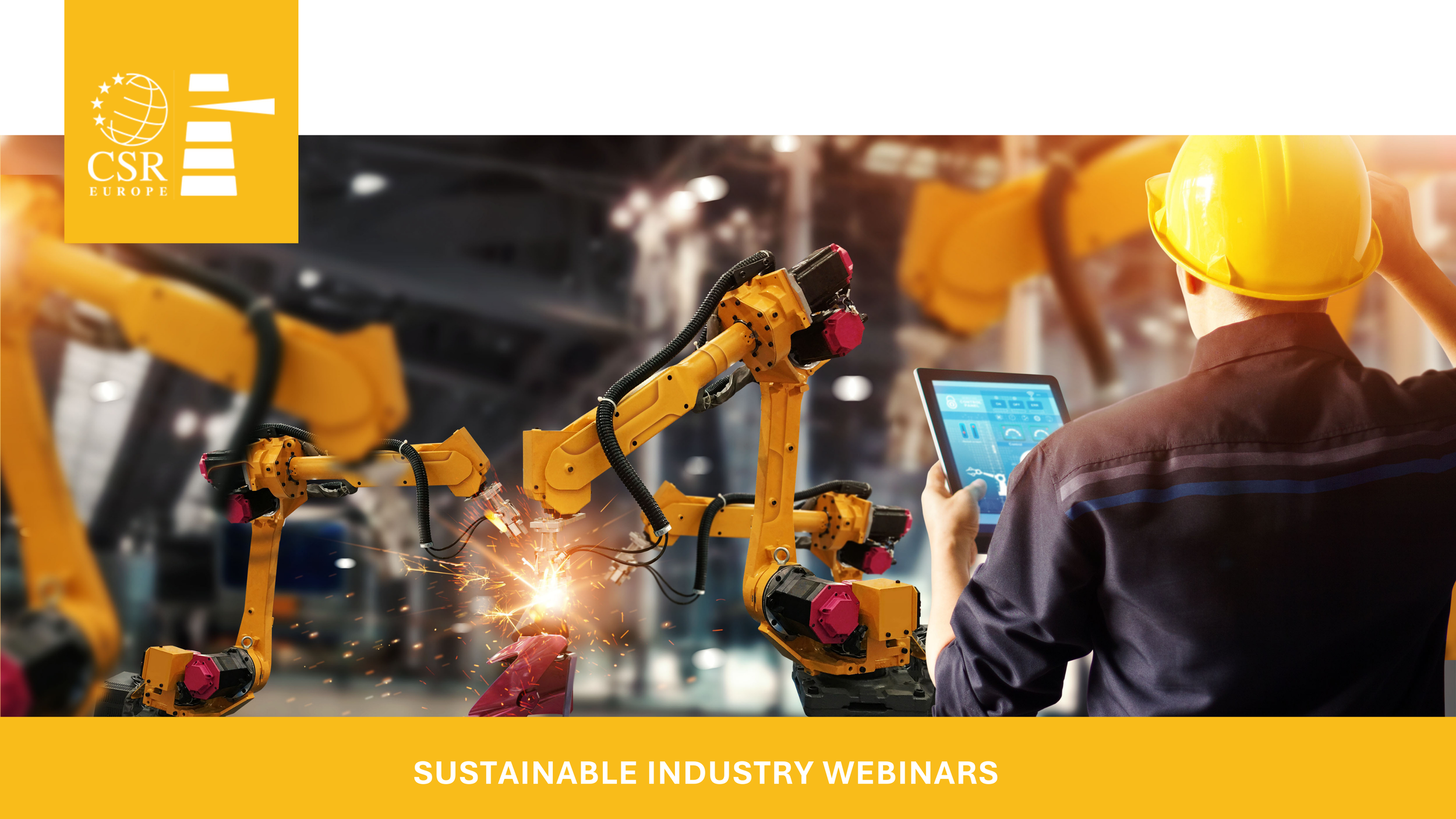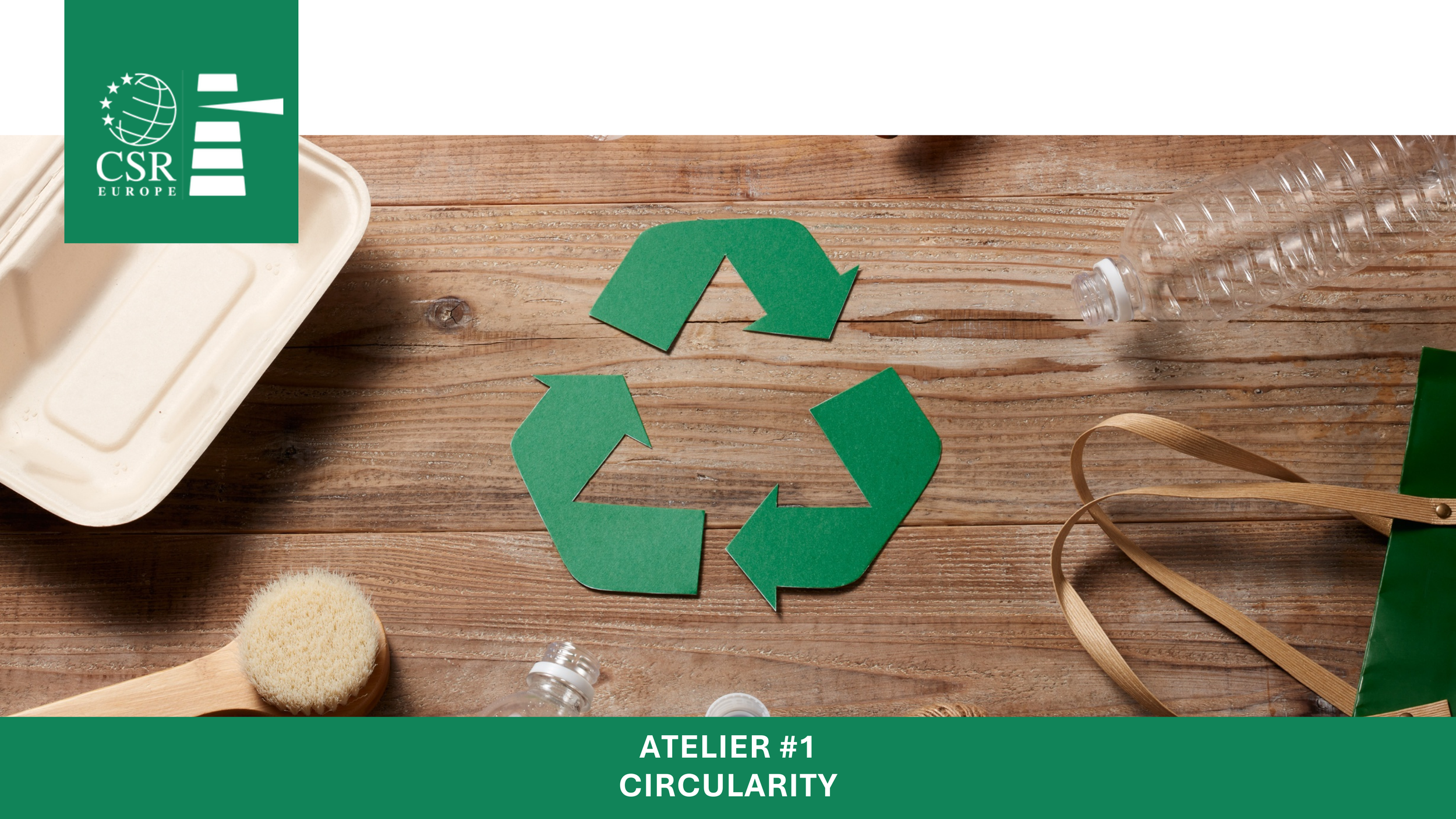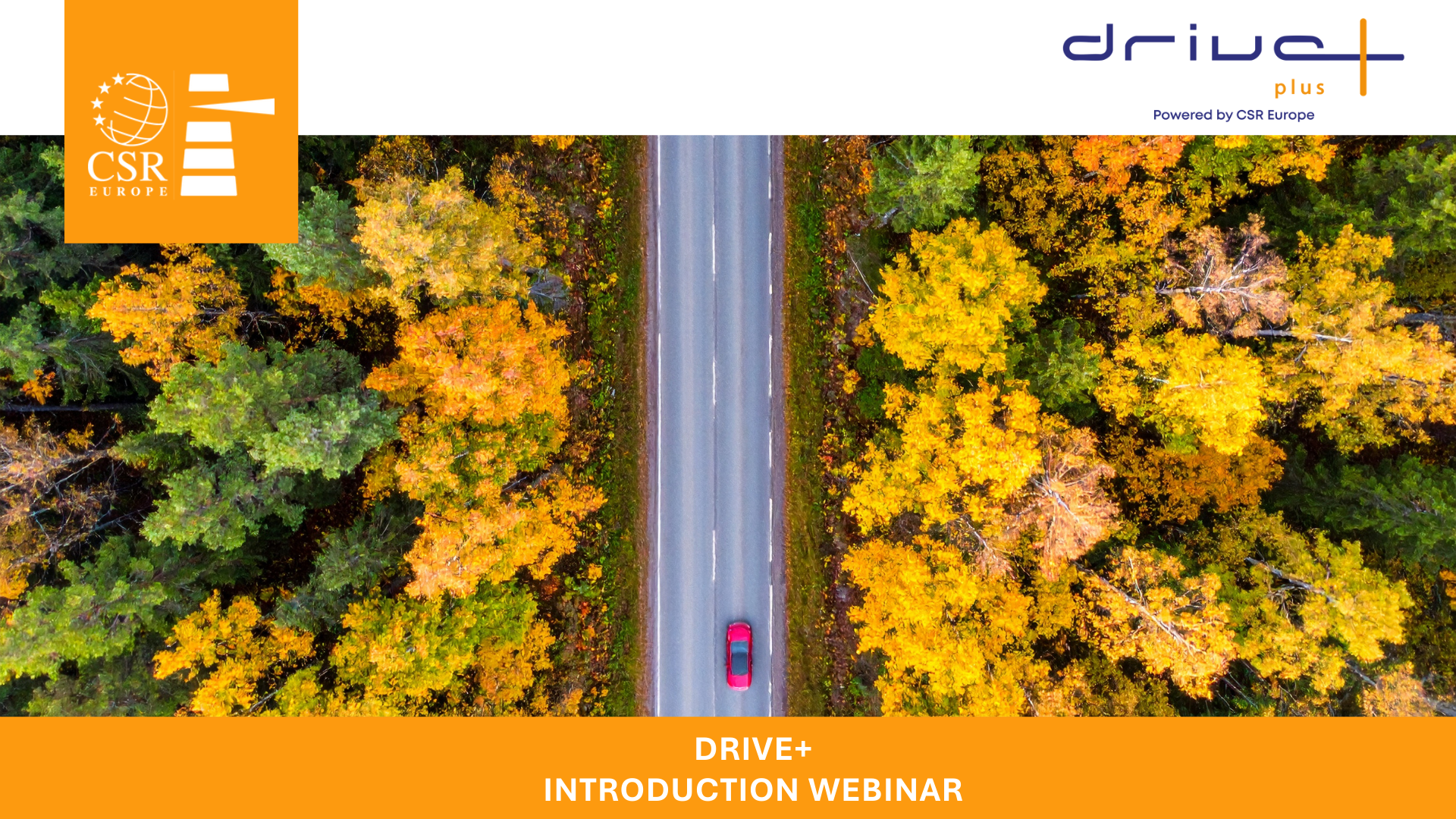Workforce Transformation for a Just Transition, The Toyota Case
The European Union has set a clear direction for the future of Europe with the Green Deal and the NextGenerationEU programme: if we want to overcome the existential threat posed by climate change and reach the targets of the Paris Agreement, we need to transform our economies and societies and design a Europe that works for everyone.
Companies like Toyota are following suit, embracing Diversity & Inclusion strategies to ensure a happy, productive, and resilient workplace. In this interview with Monica Perez Lobo, Vice President of Corporate Affairs & Sustainability at Toyota Motor Europe and recently elected Member of the CSR Europe’s Board of Directors, we address the challenge posed by workforce transformation and how Toyota is working its way to creating happiness for its employees.
Digitalisation and automation are transforming the world of work and the role of HR within companies.
How do you accompany your people in this transformation?
We are transforming into a mobility company with a very clear purpose, creating happiness for all, which means that we strive to make a positive contribution to society in everything we do, including how we attract, develop and retain the best talent. This is why Equality, Diversity and Inclusion (EDI) is a top priority for us. Our ED&I strategy ensures that everyone feels included and safe to contribute in their unique way to drive innovation. We are working hard to close the diversity gaps in our workforce, on multiple fronts. For example, in digital and technical functions we have launched the Girls STEM the future program, aimed at bringing schoolgirls in direct contact with role models – women working in our company.
In this transition innovation is key to our future, and so we engage in internal and external innovation development programs to learn new ways of working and problem solving. For example, we just completed the second edition of the Toyota Start-up Accelerator where we supported 5 start-ups contributing to society through Circular Economy, Carbon Neutral and Mobility for All with funding and support from Toyota Guides.
In other words, the whole company has to transform, including HR. They play a pivotal role in impacting the employee experience, so their ability to align with and transform our business is essential.
Is HR becoming the closest ally for business development?
HR is partnering with the business to enable them to realize their strategy and success. In addition to ensuring the basic processes and systems are in place to support talent, strategic input on topics such as reskilling, culture transformation on wellbeing and inclusion are imperative for high performance, to be an employer of choice and drive transformation.
Re-skilling is embedded within our culture and mindset. As part of our normal business practice, we invest in the development of people on the job. We also encourage employees to take on new assignments and challenges every 3 to 4 years to we can develop people and multi-skill our organisation. On top of this, we are doing more and more to empower people to drive their own life-long, self-learning. For example, this year we have launched a ‘learning campaign’ to encourage people to learn new skills, be curious and adopt a growth mind-set. Later in 2022 we are also planning to launch a re-skilling program targeted at vulnerable, underserved communities, which not only supports the communities by giving them access to the labour market but also helps fill our talent pipeline.
We also have to work smarter with more flexibility, fully taking advantage of the opportunities that the new digital tools give us, especially where automation can free-up time for employees, enabling them to focus on more value-added work. We strongly believe in a combination of on- and offsite work and our Hybrid working policy enables employees to maximise their flexibility, wellbeing, team connection, and collaboration. Employees can work from home or from the office to accommodate personal and professional needs. We also financially support employees to work from home and support occasional work from abroad opportunities.
Finally, employee wellbeing is key to enabling performance and engagement. To this end, we have developed a holistic wellbeing strategy to not only ensure that members can connect their purpose and find meaning in their work, but also take charge of developing their skills continuously and maintaining strong mental and physical resilience.
What are the other key functions that should support HR for an inclusive workforce transformation?
For the green and digital transition to be inclusive we need everyone to engage. This means that the leadership sets the direction, listens and adapts to needs of the workforce, which in turn takes a proactive approach bringing in new proposals and innovation to overcome current and upcoming challenges.
Driving workforce transformation needs to be a cross-company initiative embedded into each Function’s priorities. For example, within our Sustainability Function, our Social Impact team helps keeping a societal perspective and solves challenges through shared value activities. It works as a catalyst together with related business functions, like R&D, Manufacturing, and IT. Another example is our Pro-bono programme, where we encourage members to donate hours in support of diverse communities. While doing so, they develop self-awareness and DE&I skills.
Internal communication is key to ensure all employees feel part of the transformation journey. We have great ownership from all functional leaders to drive change in the area of inclusion. For example, in our Manufacturing Business Unit, they are promoting the concept “any member, any process” - no matter your age or gender - and applying it in all our European Manufacturing Companies.
Timely, transparent information is also important to ensure they feel well connected to our business reality and future plans, so they can contribute to them in their daily work. It is also a great opportunity to boost engagement and connection between employees.
Toyota is part of CSR Europe’s People Leaders Hub “Building an Inclusive Green Deal”.
Can cross-sector collaboration be considered a strategic direction contributing to shaping the green and digital transition in an inclusive way?
Very much so. We are not the only ones facing these new challenges. All companies and societies as whole have to join forces, engage, collaborate and learn from each other to overcome the issues of our times, like climate change. The PEOPLE Leaders Group creates a platform to facilitate this learning and best practice sharing, so that we can overcome our challenges without leaving anyone behind. Another example is the collaborative platform Together 4 STEM, where we are developing learning materials to support classrooms in building skills relevant for the green transition. We don’t need to reinvent the wheel. By participating in CSR Europe initiatives and joining forces with other companies we can increase our positive impact on society than if we did it all by ourselves.
The interview is part of the blog series “The Sustainability Agenda Towards 2030”, our monthly interviews with CSR Europe’s Board Members and Sustainability Leaders. Together we shed light on key CSR challenges of our time and how leading companies are turning threats into opportunities.
THE SUSTAINABILITY AGENDA TOWARDS 2030
UPCOMING EVENTS


